10 Best Herbal Tinctures For Insect Bites

Herbal tinctures are natural remedies made by soaking herbs in alcohol or glycerin to extract their active compounds, and they are often used to alleviate the symptoms of insect bites.
These tinctures can contain a variety of herbs such as lavender, calendula, echinacea, and St. John’s wort, each known for its anti-inflammatory, antiseptic, or soothing properties. When applied topically, they can help reduce swelling, redness, and irritation caused by insect bites. Some herbal tinctures also have antimicrobial properties that may prevent infection in open bite wounds.
While generally safe, it is important to consult a healthcare provider before using herbal tinctures, especially if you have allergies or are taking other medications.
Table of Contents
- 1. St. john's wort (Hypericum perforatum)
- 2. Marigold (Calendula officinalis)
- 3. Stinging nettle (Urtica dioica)
- 4. Yarrow (Achillea millefolium)
- 5. Echinacea (Echinacea purpurea)
- 6. English lavender (Lavandula angustifolia)
- 7. Mountain arnica (Arnica montana)
- 8. Poison ivy (Rhus toxicodendron)
- 9. White cedar (Thuja occidentalis)
- 10. German chamomile (Chamomilla recutita)
1. St. john's wort (Hypericum perforatum)

Hypericum perforatum, commonly known as St. John's Wort, is a traditional herbal remedy that has been used for centuries to treat various ailments, including insect bites.
Its tincture form is particularly effective due to its high concentration of active compounds such as hypericin and hyperforin, which possess anti-inflammatory and antimicrobial properties. When applied topically, the tincture can help reduce swelling, redness, and itching caused by insect bites. It is often preferred for its natural composition and minimal side effects compared to synthetic treatments.
However, it is important to consult a healthcare professional before use, especially if you are on other medications, as it can interact with certain drugs.
2. Marigold (Calendula officinalis)

Calendula officinalis herbal tinctures are traditionally used to alleviate the symptoms of insect bites due to their anti-inflammatory and antiseptic properties.
The tincture is made by soaking dried calendula flowers in alcohol, which extracts the active compounds such as flavonoids and triterpenes. These components help reduce redness, swelling, and itching associated with bites from mosquitoes, bees, or ticks. Applying a few drops of the tincture directly to the affected area can provide soothing relief and promote healing.
While generally safe, it is advisable to perform a patch test before use, especially for those with sensitive skin or allergies to plants in the Asteraceae family.
3. Stinging nettle (Urtica dioica)

Urtica dioica, commonly known as stinging nettle, has been traditionally used in herbal medicine for its anti-inflammatory and soothing properties.
When prepared as a tincture, it can be applied topically to insect bites to help reduce redness, swelling, and irritation caused by the venom. The tincture works by harnessing the plant’s natural compounds, such as histamine and formic acid, which may counteract the effects of insect toxins. However, it is important to dilute the tincture properly before application to avoid skin irritation.
While some people find it effective, it is advisable to consult a healthcare professional before using it, especially if you have sensitive skin or allergies.
4. Yarrow (Achillea millefolium)

Achillea millefolium, commonly known as yarrow, has been traditionally used for its anti-inflammatory and astringent properties, making it a valuable component in herbal tinctures for insect bites.
When prepared as a tincture, Achillea millefolium can help reduce swelling, redness, and irritation caused by bites from mosquitoes, ticks, or other insects. The herb contains compounds like chamazulene and azulene, which have demonstrated anti-inflammatory and analgesic effects, supporting its use in topical applications. To use, a few drops of the tincture can be applied directly to the affected area, diluted with a carrier oil or water if necessary.
While generally safe, individuals with allergies to plants in the Asteraceae family should exercise caution and consult a healthcare professional before use.
5. Echinacea (Echinacea purpurea)

Echinacea purpurea herbal tinctures are commonly used for their potential anti-inflammatory and immune-boosting properties, which may help alleviate symptoms associated with insect bites.
These tinctures are typically made by soaking the dried roots or flowers of the echinacea plant in alcohol, creating a concentrated herbal extract. While some people use echinacea tinctures topically to reduce redness, swelling, and itching from insect bites, scientific evidence supporting its effectiveness for this specific use is limited. It is often recommended to dilute the tincture with water or a carrier oil before applying it to the skin to minimize irritation.
As with any herbal remedy, it is important to consult with a healthcare professional before using echinacea tinctures, especially if you have allergies or are taking other medications.
6. English lavender (Lavandula angustifolia)
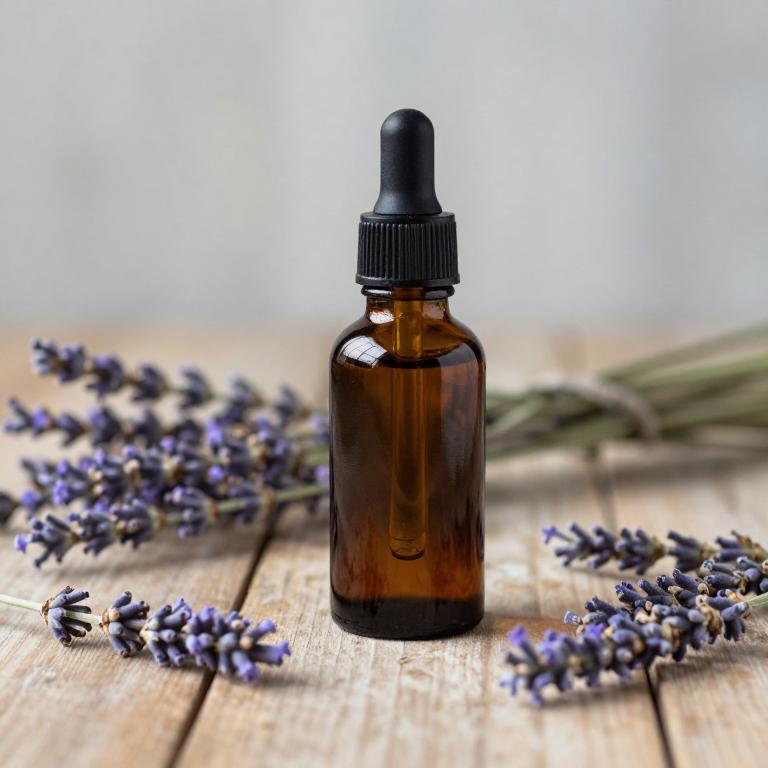
Lavandula angustifolia, commonly known as English lavender, is often used in herbal tinctures to provide relief from insect bites due to its calming and anti-inflammatory properties.
These tinctures are typically made by soaking dried lavender flowers in alcohol, allowing the essential oils to extract and create a potent remedy. The soothing scent of lavender not only helps to ease the discomfort of insect bites but also has a calming effect on the mind and body. When applied topically, lavender tinctures can reduce swelling, itching, and redness associated with bites from mosquitoes, ticks, or other insects.
Due to its natural antiseptic qualities, lavender tinctures are also believed to help prevent infection in minor skin irritations caused by insect bites.
7. Mountain arnica (Arnica montana)
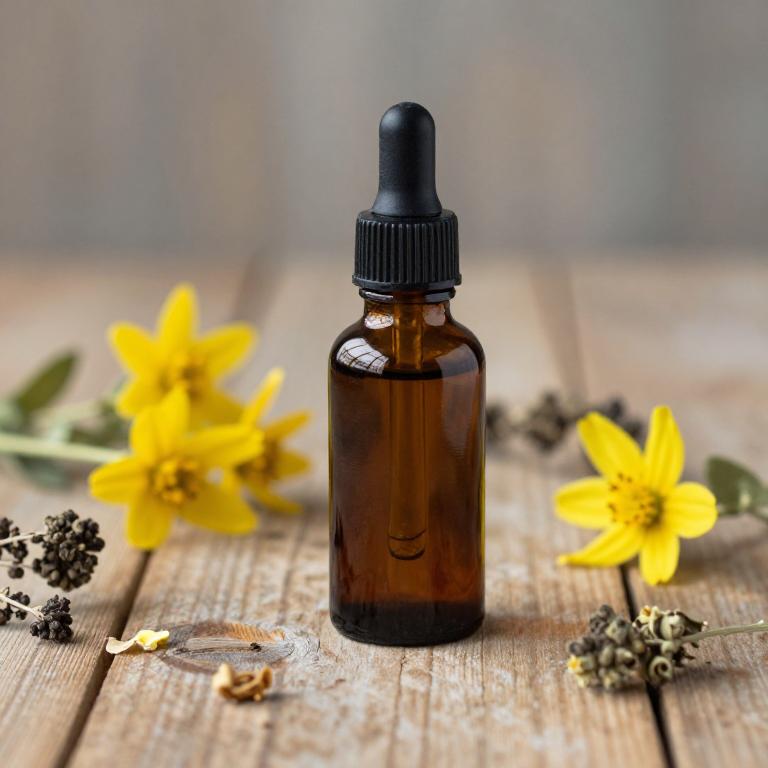
Arnica montana herbal tinctures are commonly used to alleviate the symptoms of insect bites due to their anti-inflammatory and analgesic properties.
These tinctures contain a concentrated form of Arnica montana, a flowering plant known for its traditional use in herbal medicine. When applied topically to the skin, the tincture can help reduce swelling, redness, and pain associated with bites from mosquitoes, ticks, or other insects. However, it is important to dilute the tincture properly before application to avoid skin irritation.
As with any herbal remedy, individuals should consult with a healthcare provider before using Arnica montana, especially if they have sensitive skin or are pregnant.
8. Poison ivy (Rhus toxicodendron)
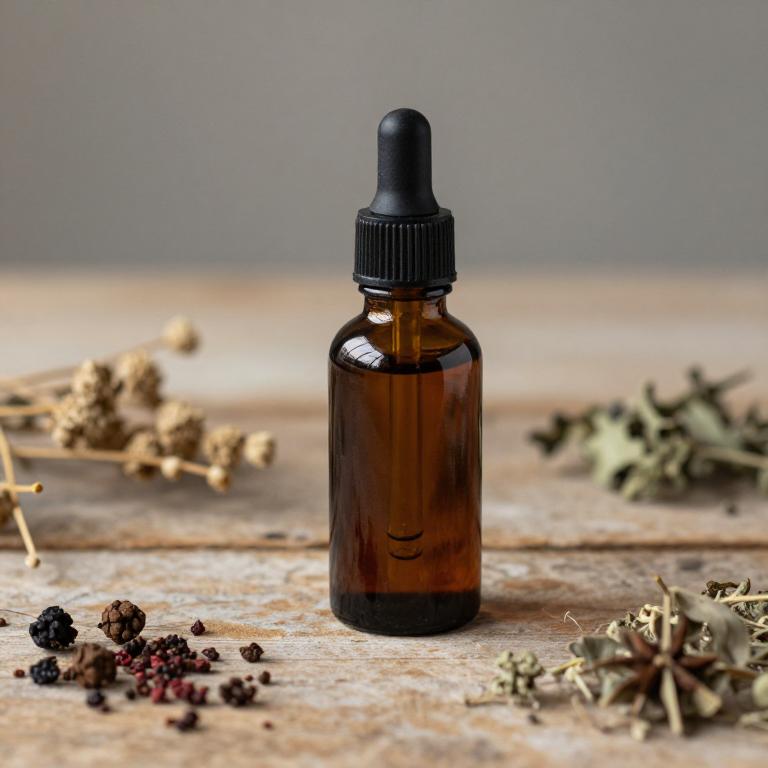
Rhus Toxicodendron, commonly known as poison ivy, oak, or sumac, is a potent herbal remedy used in homeopathic tinctures to treat insect bites and related skin reactions.
This plant is known for its ability to stimulate the immune system and reduce inflammation, making it effective for alleviating redness, itching, and swelling caused by insect bites. Homeopathic tinctures of Rhus Toxicodendron are typically prepared through a process of dilution and succussion, ensuring a safe and potent remedy for topical and internal use. It is particularly useful for bites that cause a strong burning sensation or excessive swelling, often resembling the reaction to poison ivy.
When used as directed, this herbal tincture can provide relief and support the body's natural healing process.
9. White cedar (Thuja occidentalis)
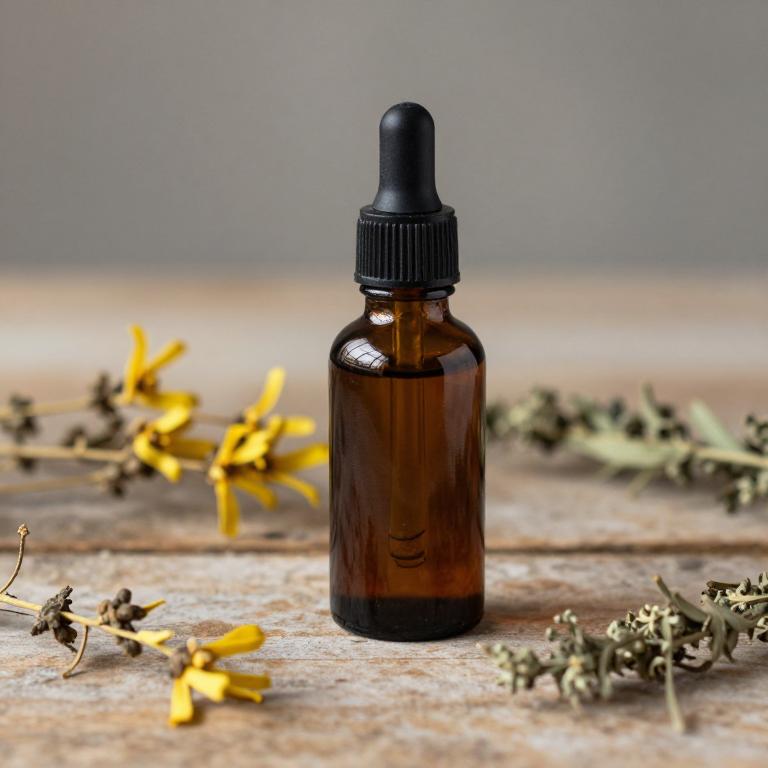
Thuja occidentalis, also known as eastern arborvitae, is a traditional herbal remedy often used in the form of a tincture to alleviate symptoms associated with insect bites.
The tincture is typically prepared by soaking the leaves and stems of the plant in alcohol, allowing the active compounds to be extracted for topical application. When applied directly to the affected area, thuja tincture may help reduce inflammation, itching, and redness caused by bites from mosquitoes, ticks, or other insects. Its antimicrobial and anti-inflammatory properties are believed to support the body's natural healing process.
However, it is important to consult a healthcare professional before using thuja tinctures, especially for individuals with known allergies or those taking other medications.
10. German chamomile (Chamomilla recutita)
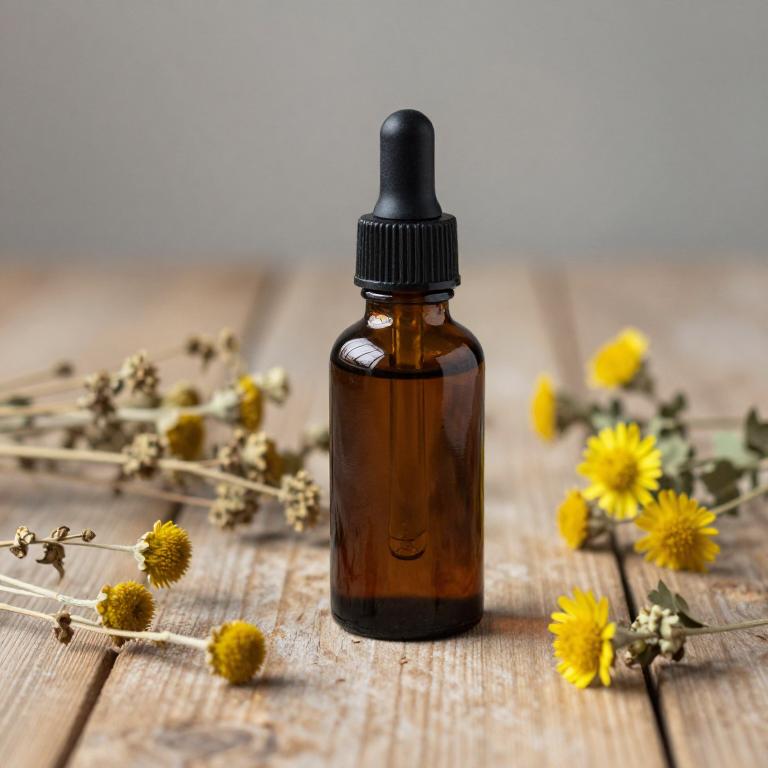
Chamomilla recutita herbal tinctures are commonly used for their soothing and anti-inflammatory properties, making them a popular natural remedy for insect bites.
These tinctures are typically made by steeping the dried flowers of the chamomile plant in alcohol, which extracts the active compounds such as bisabolol and chamazulene. When applied topically, the tincture can help reduce redness, swelling, and itching associated with insect bites. Its calming effects also provide relief from the discomfort and irritation caused by bites.
However, it is important to perform a patch test before use and consult a healthcare professional, especially for those with known allergies to plants in the Asteraceae family.